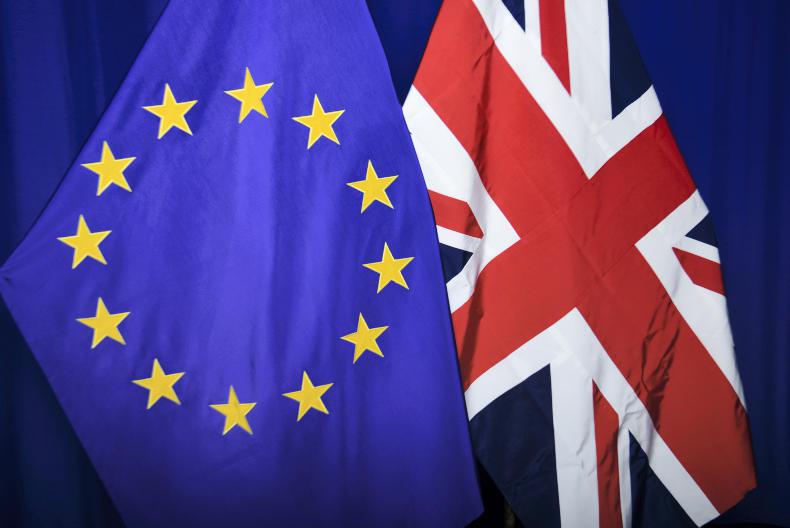The Brexit agreement reached on Christmas Eve means no tariffs and no quotas on the trade of goods between the EU and UK. It means the €1.1bn plus of tariffs on Irish agri-food exports to Britain that would wipe out this business will be avoided.
However, it does not avoid the very significant administrative cost that will come with reverting to the trading terms that existed until 1 January 1993 when the single market between all EU member states came into effect.
This creates a volume of paperwork and inspections in trade between an EU members like Ireland and Britain with exceptional arrangements provided for Northern Ireland in the withdrawal agreement.
New red tape - 15 steps
Even before the export process begins, exporters have to secure an export registration number (EORI) and have approval by the UK for both the country and exporter. The potential importer in Britain must also secure a licence from the UK rural payments agency.
The export process itself requires commercial documentation plus health certification and export accompanying documentation (EAD), an export declaration. This is used by the Irish Revenue to generate a movement reference number (MRN) which is required to board the ferry leaving Ireland and has to be notified in advance to the ferry operator. This process has to be repeated for UK customs at the import ports in Britain, with the goods vehicle movement service (GVMS) notified in advance.
The importer is obliged to notify what is expected to arrive in advance of landing and a UK MRN will be generated which in turn is given to GMS which creates a goods movement reference (GMR) number. This is critical and required by a haulier in advance of boarding a ferry to a UK port from any EU country including Ireland.
As well as all this, there are additional requirements on UK importers from the EU. The importer is required to notify IPAFFS, the UK control system for food safety and sanitary and phytosanitary controls. They also have to book loads at the arrival port and maintain records for any VAT or tariffs owed.
Some of these import procedures will be phased in over the first half of 2021 and won’t apply to trade across the border on the island of Ireland because of the withdrawal agreement’s Irish protocol, assuming it functions as intended.
Cost of doing business
This bureaucracy does not reflect the likely delays at ports, which could have the most negative effect of all on the transport of perishable goods from Ireland to Britain.
This was estimated by UK agriculture consultants Anderson’s to be up to £150t on fresh beef with a limited shelf life for an average load and as high as £1,100t for what they described as the unlucky load which is delayed by a detailed inspection and likely to apply to only one in 100 consignments.
This means that the average cost of administration necessary after 1 January 2021 on beef carcases shipped from Ireland to Britain would be up to 10p/kg (11c/kg). In the most extreme case for the unlucky load, the £1,000t (€1,100t) on fresh beef destined for high-value markets with limited shelf life, would be the equivalent of approximately 80c/kg on carcases.
While this would be exceptional, up to 10p or 11c cost per kilo on a carcase is the average expected cost estimated by Andersons to do business with this basic trade deal.
The cost on a litre of milk is estimated at 1.2c/l.






 This is a subscriber-only article
This is a subscriber-only article









SHARING OPTIONS: